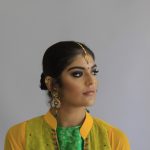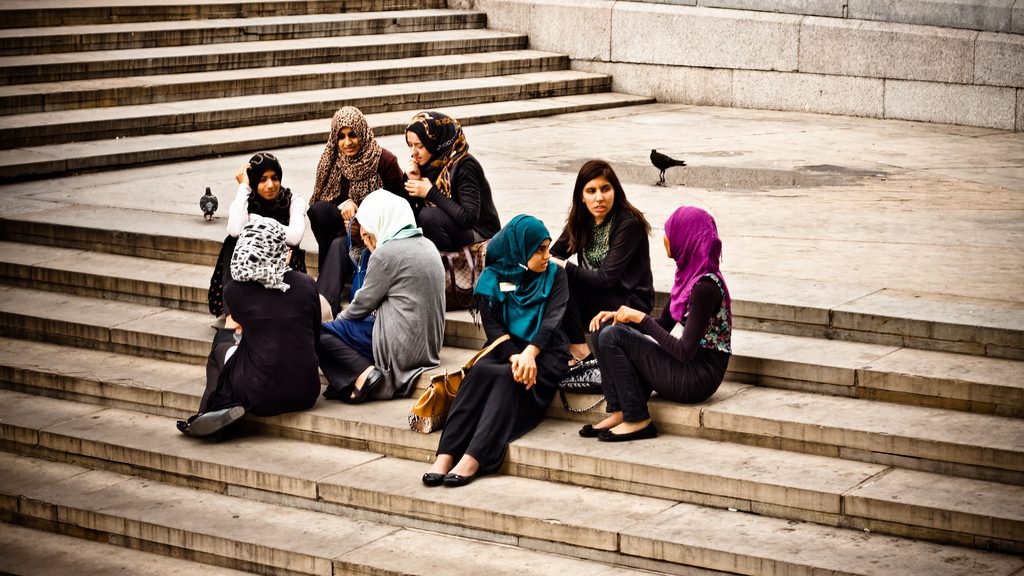by Suraiya Ali – Follow @batiniyya
To Muslim Women,
Islam is a religion of women. I will speak these words until my heart stops. Islam is a religion of women. Our prophet who was delivered the revelation may have been a man but his first and truest disciple was his wife. She was a woman of stature, endurance, patience and poise. And to reiterate what has already been said, she was a woman. With female hands was the first iftar made; with female hands was the first wudu done.
All the sanctified souls Rasulullah saw on his night journey were of women- We would have no Adam, John, Jesus, Joseph, Idries, Aaron, Moses, or Abraham without Eve, Elizabeth, Mary, Rachel, Barkanah, Jochebed, and Amathlaah. Even in the prophet’s family, although it was Hazrat Ali who went down in sajdah before the sword of his enemy and his son Hazrat Hussien who was massacred at Karbala – it was Hazrati Zainab, Rasulullah’s granddaughter, who was tasked to carry the weight of the carnage back to the believers, and subsequently, to the rest of time. It is Bivi Fatima, The Prophet’s daughter, who is said to come to the aid of the needy and the helpless. In her black chador do foreignness and aliment reside.
Islam lives in our wombs. The Shahada lives in our wombs. Salat lives in our wombs. Sawm lives in our wombs. Zakat lives in our wombs. Hajj lives in our wombs.
You have no Islam without women. It is on a woman’s back does Islam find its alter.
Islam is birthed by women. Islam is kept alive by women. Islam, in its submission and in its excellence, dies if its womenkind are not protected.
During the month of Ramadan in Muslim year 1438, women were not protected. Seventeen-year-old Nabra Hassanen was beaten to death while on her way to Qiyam prayer recently in her North Virgina hometown. Regardless of the fact that her death has not been ruled a direct hate crime—it comes at a time where Muslim women specifically face the brunt of Islamophobia, direct or indirect, both in this country and abroad.
Nabra stood as a pinnacle of what it means to be Muslim, to be a young woman, and to be a black American. She wore a head scarf and Islamic robes. She had chosen such symbols of devotion at a commendably young age. And whether her awful death was an outcome of that choice, we may never know for sure. But she does represent the fact that for veiled Muslim women, their existence is one that is often objectified into being purely a threat, and their lives are endangered at any given moment because of this. For black Muslims, this is only heightened by the racism already rampant in this nation. For Muslim women in general, it showcases that head scarf or not, Quranic name or not, pigmented skin or not, there is a real danger in existing as Muslim.
To Nabra I want to say that since your passing I have meditated on your name. It has become my zikr. I remember you. When the strength in my fast wanes, I remember you were not able to complete yours- I find strength in your name. In prayer for strength I call on many names; Muhammad, Hazrat Ali, Hazrat Hussein— but I do not forget yours, for it always comes next. You are a martyr of our times; who went out to pray and was faced with violence. As someone who has felt the physical end of Islamophobia – who has faced boys chasing her in elementary school hallways to pin her in bathroom stalls in order to berate and shame her, who has dealt with physical violence at the hands of other POC’s on middle school playgrounds and suburban back allies.
[Read More: Teenager Nabra Hassanen Murdered While Returning from Mosque During Ramadan]
As someone who has felt the physical hands of hatred on her—Nabra I am sorry. I am sorry. I am sorry. I am sorry we could not protect you. And now, just like Hazrati Zainab, Bivi Fatima, and the rest of Muslim womankind, may you go down in history as being the definition of a devotee. Islamic history has a problem with remembering the women who represent it, but we will not forget you. May you rest in power sweet child. May you forever rest in power.
To Muslim women, I love you dearly. Regardless of what stage of Islam you operate in, regardless of how Muslim you feel—know you are valid and that I love you. You who birth Islam also face its largest burden—criticized, objectified, victimized both within the religion and without. Know that you carry the power that Zainab used to rally the believers in tragedy. Know that you carry the virtue of Bivi Khadijah’s first salat. Know that you carry the utter grace of Bivi Fatima and her devotion. Islam is not a religion of current parted mosques and patriarchal judgments. It is a religion of women. It belongs to you. It always has and it always will.
To those who do not value us—I will repeat what I started this piece with: Islam is a religion of women. I will speak these words until my heart stops. Islam is a religion of women. On a woman’s breath does Submission rest. Without us, you would not have the faith you try to use against us. I promise, you will fail time and time again to do so. Islam belongs to us. This will never change.
 Suraiya Ali is a desi/Persian artist, writer, and novice theologian from Dallas, Texas, currently studying in LA. She truly wishes she could have fought by Hector during the Trojan war and has seen Bajirao Mastani 10+ times.
Suraiya Ali is a desi/Persian artist, writer, and novice theologian from Dallas, Texas, currently studying in LA. She truly wishes she could have fought by Hector during the Trojan war and has seen Bajirao Mastani 10+ times.





